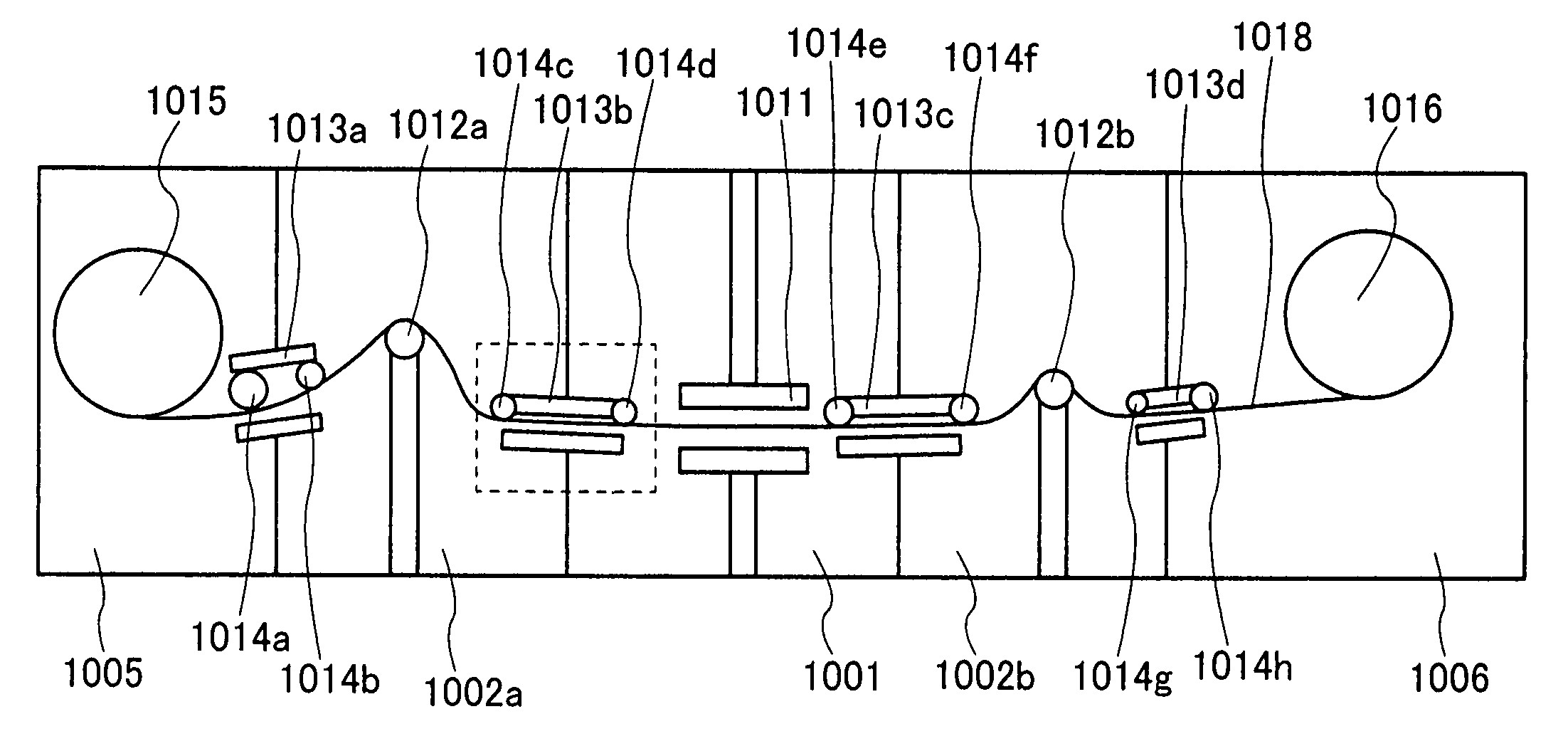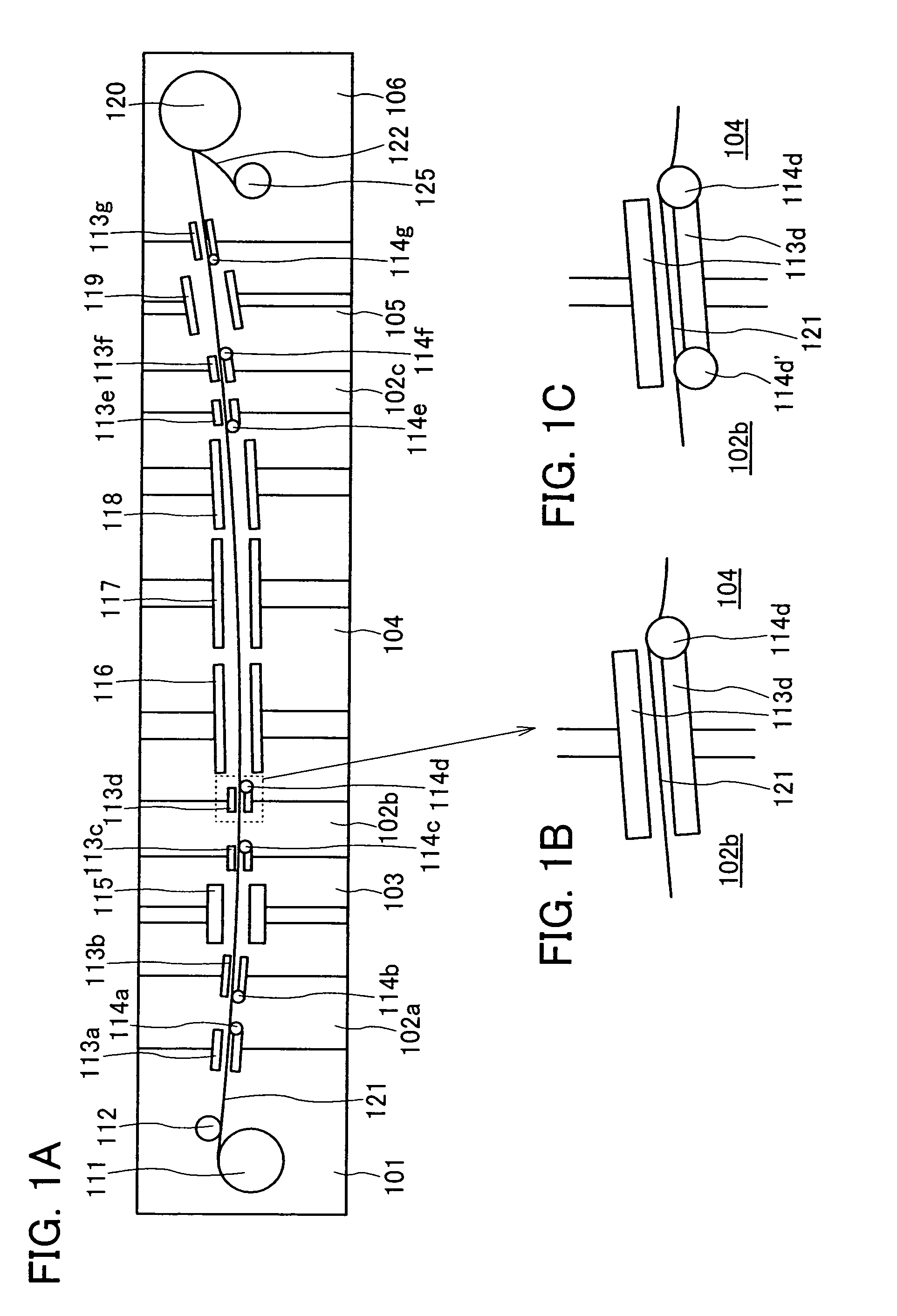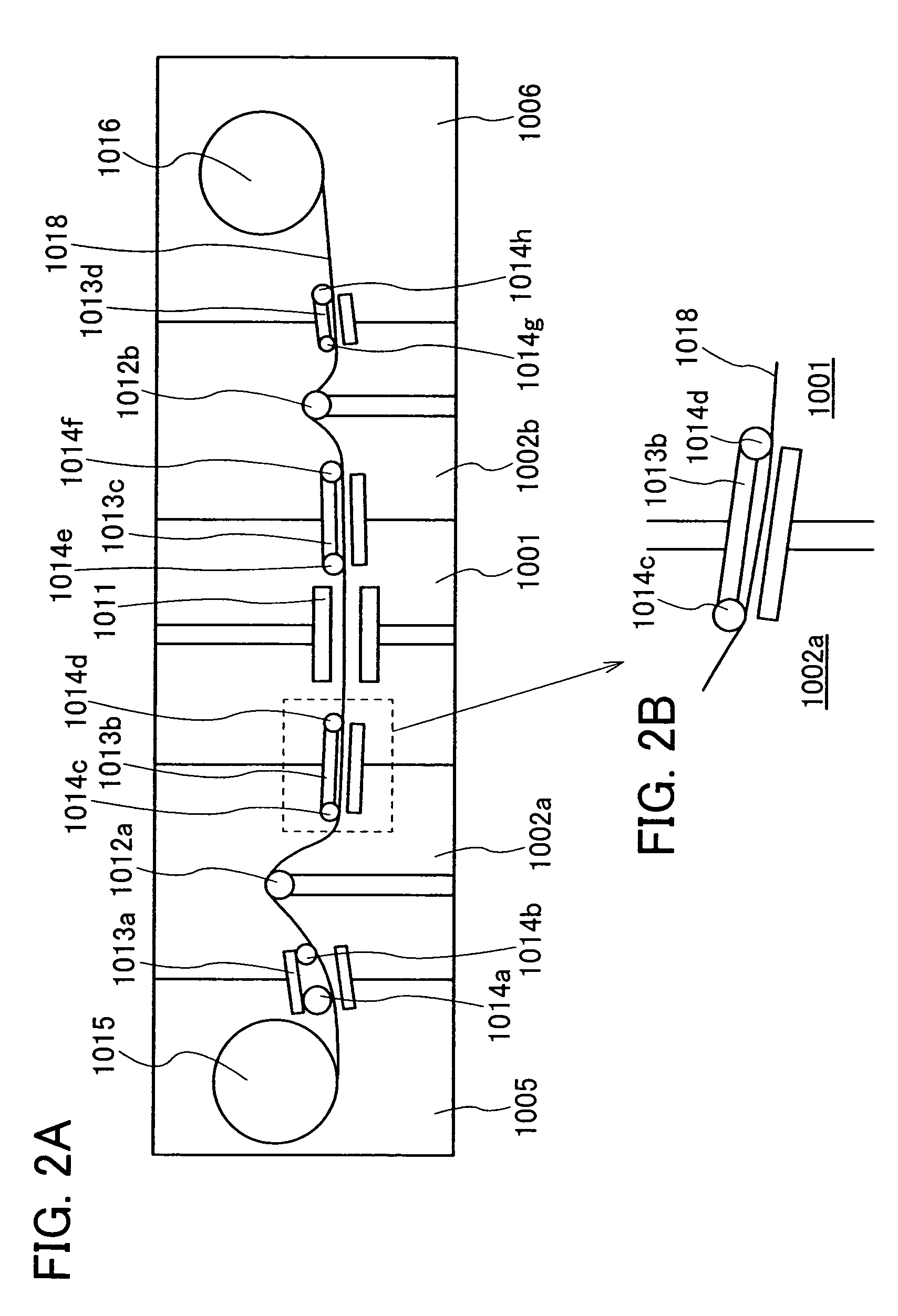Film formation apparatus, method for forming film, and method for manufacturing photoelectric conversion device
a technology film formation apparatus, which is applied in the direction of plasma technique, sustainable manufacturing/processing, and final product manufacturing, etc., can solve the problems of difficult use of photoelectric conversion device as a product, reduced yield, and adverse effects of light to be received, so as to prevent damage to the light receiving region of an element, suppress curling, and highly reliable photoelectric conversion device
- Summary
- Abstract
- Description
- Claims
- Application Information
AI Technical Summary
Benefits of technology
Problems solved by technology
Method used
Image
Examples
embodiment mode 1
[0061]This embodiment mode will be explained with reference to FIGS. 1A to 1C, FIG. 3, FIGS. 4A to 4C, and FIGS. 5A and 5B.
[0062]FIG. 1A shows an overall view of a film formation apparatus of this embodiment mode, and FIGS. 1B and 1C show views of an enlarged slit and touch roller. The film formation apparatus shown in FIG. 1A includes transfer chambers 101 and 106, buffer chambers 102 (102a, 102b, and 102c), and film formation chambers 103, 104, and 105.
[0063]In the transfer chamber 101, a roller 111 and a touch roller 112 for sending a substrate 121 are provided. The substrate 121 is a flexible substrate, and for example, a polyethylene naphthalate (PEN) film, a polyethylene terephthalate (PET) film, a polybutylene naphthalate (PBN) film, or the like may be used. The substrate 121 is sent from the roller 111 to the buffer chamber 102.
[0064]The buffer chamber 102 is provided between the transfer chamber and the film formation chamber or between the film formation chambers. By trans...
embodiment mode 2
[0094]In this embodiment mode, an example of a different structure of the film formation chamber 104 in FIGS. 1A to 1C from that of Embodiment Mode 1 will be explained with reference to FIG. 6 and FIG. 7.
[0095]FIG. 6 shows a state in which a substrate 121 is transferred between upper electrodes 301 (301a, 301b, and 301c) and lower electrodes 302 (302a, 302b, and 302c) of a discharging electrode provided in a film formation chamber. Masks 304 (304a, 304b, and 304c) are provided between the substrate 121 and the lower electrodes 302. In other words, the lower electrode 302a is provided with the mask 304a, the lower electrode 302b is provided with the mask 304b, and the lower electrode 302c is provided with the mask 304c.
[0096]The upper electrode 301 is divided into a plurality of upper electrodes, for example, three upper electrodes 301a, 301b, and 301c, each of which has a roll electrode 303. In other words, the upper electrode 301a is provided with the roll electrodes 303a (303aa, ...
embodiment 1
[0103]In this embodiment, a method for manufacturing a solar battery by the present invention will be explained with reference to FIGS. 8A to 8C, FIGS. 9A to 9C, FIG. 10, FIGS. 11A to 11C, FIG. 12, and FIGS. 13A and 13B.
[0104]In FIG. 8A, as for a substrate 401, an organic resin material such as polyethylene terephthalate (PET), polyethylene naphthalate (PEN), polyether sulfone (PES), or polybutylene naphthalate (PBN) is used. In this embodiment, polyethylene naphthalate (PEN) with a thickness of 60 to 100 μm is used as the substrate 401.
[0105]A solar battery manufactured in this embodiment is an integrated solar battery in which a plurality of unit cells is connected in series over the same substrate. Further, the solar battery of this embodiment has a structure in which light is received in a surface opposed to a surface over which a photoelectric conversion layer is formed over the substrate 401. A transparent electrode layer 402 is first formed over the substrate 401. The transpa...
PUM
| Property | Measurement | Unit |
|---|---|---|
| grain size | aaaaa | aaaaa |
| energy band | aaaaa | aaaaa |
| energy band | aaaaa | aaaaa |
Abstract
Description
Claims
Application Information
 Login to View More
Login to View More - R&D
- Intellectual Property
- Life Sciences
- Materials
- Tech Scout
- Unparalleled Data Quality
- Higher Quality Content
- 60% Fewer Hallucinations
Browse by: Latest US Patents, China's latest patents, Technical Efficacy Thesaurus, Application Domain, Technology Topic, Popular Technical Reports.
© 2025 PatSnap. All rights reserved.Legal|Privacy policy|Modern Slavery Act Transparency Statement|Sitemap|About US| Contact US: help@patsnap.com



